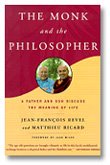
Benjamin Libet and Free Won't
An updated, clearer article with the same title can be found by clicking here.
Hold out your arm. Look at it. Now bend your hand at the wrist. Do it whenever you want. Do it a few times.
How did this process begin? Was it you? Was it these words?
In 1985, neuroscientist Benjamin Libet conducted an experiment similar to this. (See Free Will and Benjamin Libet's Experiments, 8 November 2003.)
With electrodes connected to their wrists and scalps, his subjects had brain waves recorded as they watched a clock with a spot revolving faster than a second hand. Like you, they were told to flex their wrists spontaneously. They were also told to note the spot's position at the time they decided to do so. They stated where they saw it, and Libet correlated their observations with data recorded by electrodes at wrist and scalp.
Libet measured three factors: the action's beginning, the moment of decision, and the Readiness Potential, which began a certain brain wave pattern. This pattern involves the brain's plans to carry out an action.
Okay, so what did he find out? This. The action was recorded as taking place before the decision to act.
Libet was surprised. He expected a different sequence, this one: first, the decision to act, then the planning stage, otherwise known as Readiness Potential, followed by the action. Instead, the Readiness Potential preceded the decision. No decision caused the brain to get ready to act. The brain got ready, then gave the appearance that a decision was made.
The sense of decision was rather like a hood ornament over a truck engine, symbolic rather than instrumental. Libet found one, Readiness Potential, two, decision, three, action. The Readiness Potential led to the action, with the decision to act as an impression after the fact.
In other words, while his subjects thought they were deciding, they actually saw an internal replay of a decision that had already occurred. They did not initiate an action but thought they had. They thought their decision had caused the action.
Libet's experiments suggest that his subjects apparently didn't have free will, but instead, a kind of free won't. That is, he told them that they could veto an action. Instead of flexing a wrist, they could stop the movement. He discovered an action could be vetoed, but the subjects only had one tenth second (100 milliseconds) to do so. In short, they could not initiate an action and could only overrule any impulse if they were alert and acted instantly. This is reminiscent of Zen teachings about alertness as the road to freedom. (See the Zen parable, "Attention means attention," in Ramesh Balsekar's Inconsistencies, 10 March 2004.)
(Of this experiment, and its implications, Tufts University philosopher Daniel Dennett* is reputed to have said "I want more freedom than that." *(Freedom Evolves, Elbow Room, Consciousness Explained, and other books.) In short, this does not mean he refuses to accept the facts but believes that they can be interpreted differently.)
Now a question. Where is the self that seems to make all the decisions?
Time is out of joint for us. Another Libet experiment, in 1981, revealed that brain stimulation induces conscious sensory impressions, but only one half second after steady stimulation. In other words, consciousness builds over time. It lags behind events and only later corrects the delay by making us think that awareness occurred before the stimulus. (Our brains are masters of deception. See Gorillas and Inattentional Blindness, 13 March 2004.)
During meditation or other introspection, one looks steadily into his experience and finds nothing that lasts, only ever-changing impressions, thoughts, sensations, without separation between observer and observed.
Scottish philosopher David Hume said that whenever he delved within he found only perceptions--heat, cold, pain, pleasure--and from this concluded that the self was nothing but a bundle of perceptions. True, but beyond them, a perceiver remains as distinct from the sense of self, and it cannot be explained by that which it perceives. (See Perception, 8 December 2003.)
So do you make decisions? How do you know? If you believe so, find your beliefs and the self who believes them.
(Also see Wheeler and Delayed Choice, 11 January 2004; Penrose and Brain Wave Function Collapse, 23 January 2004; Free Will: Goswami, Balsekar, Libet, 28 December 2003, Daniel Dennett and Compatibilist Volition, 15 December 2003, Daniel Wegner and Free Will, 12 December 2003, Two Sages and A Taoist, 9 January 2004, Losing Control, 9 December 2003; Thought Experiment: Where Are You?, 8 March 2004; Brain in A Vat, 20 November 2003.)



